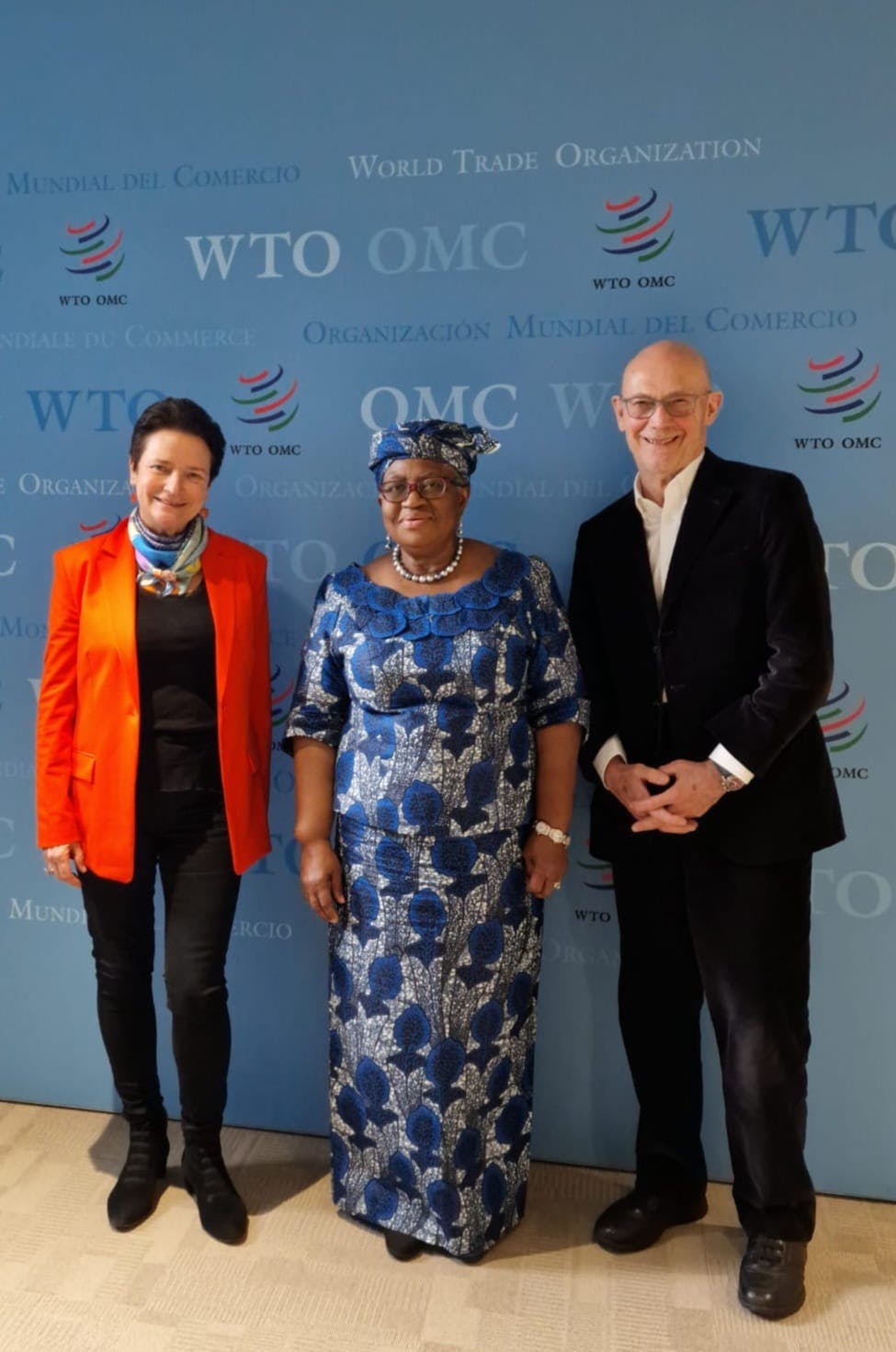Greening Trade 14 – EU trade and the environment: Development as the missing side of the triangle
For the last four years, the greening of the EU's trade policy has progressed at a fast speed, as evidenced by a series of initiatives by the EU Commission which have resulted or will result before the end of the present legislature in the adoption of a host of new “greening trade” measures. Besides the two flagship Carbon Border Adjustment Mechanism (CBAM) and the Deforestation-Free Products Regulation, Europe Jacques Delors has been researching and publishing on the Corporate Sustainable Due Diligence Directive (CSDD), as well as on other envisaged instruments such as mirror measures in the agrifood domain or product regulations.
The overall purpose of the EU’s green trade initiatives is to align the EU’s import regimes with changes in the EU’s domestic regimes stemming from its new environmental ambitions known as the “EU Green Deal” and the “fit for 55” package – while respecting international trade rules. Such an alignment is based on both offensive and defensive considerations. Offensive, as the EU’s green initiatives often aim to incentivise similar greening efforts by EU’s trade partners, leveraging the EU’s market power. Indeed, due to the fragmented nature of global value chains, limiting environmental initiatives to the EU will be insufficient in addressing the block’s environmental footprint. Defensive, as they also respond to fears from domestic producers that the lack of a level playing field negatively impacts their competitiveness when compared to foreign producers importing into the EU that are not subject to similar or comparable environmental requirements. This, in turn, could result in the further externalisation of the EU’s environmental impact.
This new corpus of green legislative and regulatory instruments is in line with the political will of European citizens as it was expressed in the European elections in 2019. Although the discussions by the Council and the Parliament of green instruments, such as the CBAM and the Deforestation-Free Products Regulation, have been difficult as various interest groups have unsurprisingly manifested different positions, these instruments have been adopted in both chambers with comfortable majorities confirming the support of domestic public opinion. Only recently have some measures met more resistances, such as the termination of combustion engines production by 2035.
But reactions from the EU’s trade partners have been more negative, underlining what Europe Jacques Delors called in 2021 the “first mover disadvantage”, and leading to criticism of “green protectionism” or even, more recently, of “regulatory imperialism”. Whereas such positions were to be expected, as exports to the EU will be affected by the adoption of the EU’s green instruments, they need to be qualified depending on the specific situations of the countries impacted. Some countries whose production conditions provide them with a “green” comparative advantage will benefit from a large and deep market where their products offer a premium. Others will not and will have to adjust. Some countries have the resources to change or can find alternative markets, others will struggle and lose part of the EU's market which they may depend on. What makes the difference often has to do with discrepancies in levels of economic development, hence in capacities to adapt production systems to new standards.
These reactions and their differences matter for geopolitical reasons at a time when North-South relations have soured as a result of an accumulation of frustrations of various origins, from past colonialism to the perception of double standards in the conduct of international affairs or energy policies, and from the scars of unequal treatment during Covid to attitudes towards the Russian aggression of Ukraine. They also matter, perhaps more importantly, for specific environmental reasons as issues like climate change or biodiversity loss are inherently characterized by the asymmetry between causes of environmental degradation residing mostly on the side of developed countries, and their consequences which are felt more severely by some developing countries and Least Developed Countries (LDCs).
For all these reasons, the authors of this publication believe that the EU should acknowledge that greening its trade is affecting, and will disproportionately affect, some of its most vulnerable trading partners and re-integrate more of the development dimension in the conduct of its green trade policy. Our position is not new and was already expressed in several of our previous publications in the “Greening Trade” (GT) series. Yet we believe that the negative dynamics which have appeared recently deserve a strong and rapid reaction on the EU side. Designing the contours of this reaction is the purpose of this paper.






